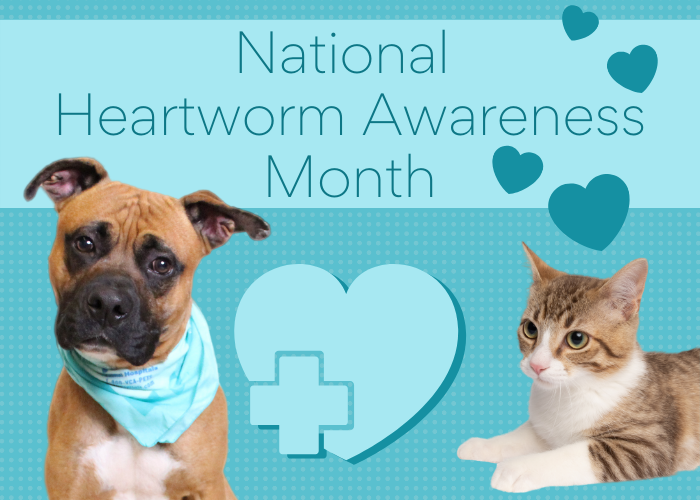
April is National Heartworm Awareness Month, but heartworm disease is something you will hear us educating our clients on year-round. Why? Let’s look at some stats. The Companion Animal Parasite Council gathers test information from veterinarians across the U.S. to determine the rate of infection. The current infection rate in Butte County is 1 in 63 dogs tested compared to a statewide average of 1 in 303. Surrounding counties have an even worse rate of infection; Tehama county is 1 in 40, Plumas county is 1 in 14, and Shasta county is 1 in 50.
Why is Heartworm Disease a big deal? Heartworm disease affects the heart, lungs and pulmonary blood vessels of pets putting immense strain on their cardiovascular system. This can cause severe lung disease, heart failure, organ damage and ultimately death if left untreated. What’s more- unlike intestinal parasites that show up in the feces of our pets and are fairly easy to detect, you will never see that your pet has heartworms as they only live in the blood vessels before maturing and moving into the heart and lungs.
The only way to be sure your pet is not infected is by a simple blood test. While heartworm is more common in dogs, cats are at risk of contracting heartworms as well. The best offense is a good defense when it comes to preventing heartworm infections. Monthly heartworm prevention should be given for the life of your pet. We recommend that your pet starts on monthly heartworm prevention by the time they are 6 months old and having them heartworm tested routinely. Routine testing and monitoring are important- even if they are on heartworm prevention because prevention (just like preventatives available in human medicine) are not 100% effective.
The earlier the infection is caught- the easier it is to treat! Prevention options are available for as little as $6 a month in comparison to the high cost of treating an infection- even at our low-cost clinic. In the unfortunate event that your dog is infected with heartworm, treatment is available, and while the treatment is invasive and costly, recovery outcomes are fairly good but do depend heavily on the age of your dog and how severe the infection is at the time of treatment. There are currently no approved treatments for cats, but supportive care can help manage complications. The Butte Humane Society Clinic is committed to keeping our clients informed and educated to best protect their pets. Has it been over a year since your pet’s last heartworm test? Are they current on heartworm prevention? Talk to your vet about heartworm prevention today!